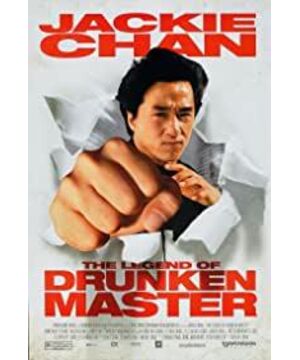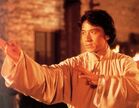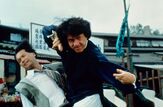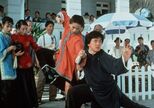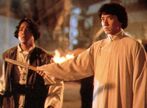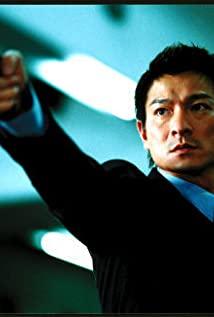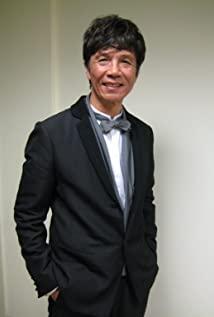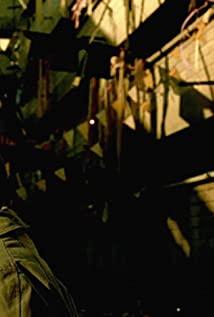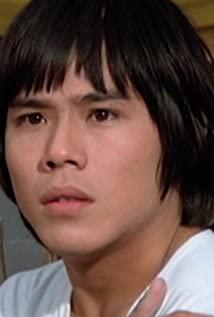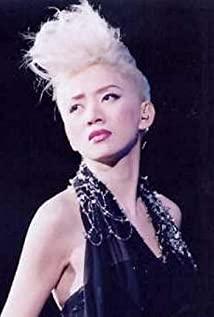"Drunken Master 2" as a sequel successfully completed a high degree of progress, which inevitably reminds me of "Plan A Sequel". The revolutionary party's retention of Ma Rulong and his confession in the film are quite meaningful. , Discussed the inner relationship between personal ideals and saving the country and the people, that is, destiny and national destiny. "Drunken Master 2" is no exception. The deepest impression left by the whole film is the big scene, the big battle, the grandeur, Guangzhou under the rule of the Nationalist government, the Baozhilin medicine shop, the market scene, the undercurrent surging city life. Every fight of Huang Feihong seemed to attract crowds of onlookers, thus exaggerating a noisy and lively atmosphere of life, which contrasted with the Spring Festival stalls of the year. Moreover, Huang Feihong’s entry point brought together the common memories of the people in the Cantonese-speaking area. After repeated trials, it is whether he has played new tricks. Drunken Master 2 inserts the serious and steady father Huang Qiying and the comedy mom in the character setting, one guard, one fight, one relaxation, and the delineation of Huang Feihong's character in retracting and rewinding is also effective. Suppressed his personal heroism arrogance. The most exciting fights in the film revolve around Zuiquan. Feihong's personality has undergone a tremendous change from the wanton use of drunk boxing, to the change of past mistakes, to the rational use. At the same time, Drunken Master made him miss ginseng and caused a farce; made him get to know A Can and other daring friends; caused him to encounter huge personality insults and spiritual shock; it made him cheer up from adversity and complete the great cause of saving the country. This means that "water can carry a boat and it can overturn it." Drunken Master promotes the development of drama contradictions, conflicts and plots. In the ups and downs, Huang Feihong's character is enriched, which adds a lot of deeper and more vivid spiritual connotations to his image of a boy with innocence in justice. The first half of the film is more relaxed and lively, telling the interesting story of Huang Feihong and his mother and father fighting wits. A drunken fist on the square is just right, combining the variety of the drunk eight immortals with the martial arts power of a hard bridge and a hard horse. , The rhythm jumps cheerfully. The atmosphere of the story took a turn for the worse when Huang Feihong was insulted, with an insulting ending that gave Huang Feihong and the audience a head-on blow. Since then, Zuiquan has ceased to be a symbol of unprofitable winners. It has begun to rely on the use of wisdom and the morals and justice that the martial artist himself must abide by. After all, the word "drunken fist" combines the two wounding things of alcohol and force. Improper use will make it hard to get rid of water. And the fledgling Huang Feihong is not good at controlling the amount of alcohol, so he is often so drunk that he ends up being expelled from the house and showing up in the street. The depressive plot slowly rebounds, because Huang Feihong's pains to change his past. In Zuiquan, his fight with Fu Mingqi in the teahouse combines passion and tragedy elements. The two of them have made great efforts at home, but Fu Mingqi inevitably died in the end. "Foreign guns and cannons" down. Huang Feihong and A Can ventured into the consulate, but because of embarrassment, they were arrested and forced their father Huang Qiying to cede the land in the sand. The oppression of foreigners on Chinese people can be seen everywhere. This pressure runs through from the violence of the steel factory to the insidious face of forcing the purchase of land, which implies the rise of patriots. This naturally includes Huang Feihong's Hongquan faction. The first battle in the iron and steel plant was a contest between force and enmity. The outbreak of feud between the family and the country focused on Huang Feihong's last fight. After experiencing black and blue wounds, Huang Feihong finally took the risk of drinking industrial alcohol after seeing the characters on the fan, and completed the final fight with extreme drunkenness and sacrifice. So far the Drunken Eight Immortals has become the end of his glorious past. Although Huang Feihong is not dead, industrial alcohol has corrupted his brain and vision, and a generation of heroes has fallen to the end. The ending cannot be said to be cruel, and I don't know whether this time the boat was carried or overturned. Fu Minqi dared to use his own strength to fight against the power. His spirit of sacrifice can be said to guide Huang Feihong. The prestige of his predecessors has left an eternal reputation, and Huang Feihong also grows up again through life and death, thus joining in his personality. Although Drunken Master punishes evil and promotes good, it can easily destroy the mind. Comprehending boxing in drunkenness is a manifestation of Huang Feihong’s increasingly exquisite boxing skills, but what really pushes the meaning of drunken boxing to the heights is its ingenious combination and flexible use with martial artists, so that drunken boxing can be integrated with people. Don't let yourself be controlled by drunkenness. At the end, when Huang Feihong drank the industrial alcohol, he had learned to grasp the concentration, easily challenged with the "just right" amount, and then triumphed. Liu Jialiang and Jackie Chan played the role of the two main play scenes respectively. The different concepts of Liu Jiaban and Chengjiaban are obvious. Liu's class combines martial arts with quaint Chinese characteristics, and a set of Drunken Eight Immortals has a round and endless beauty; the married class focuses on the blend of martial arts and rhythm, paying attention to sharp movements and fierce offensives. From the perspective of catering to the tastes of different audiences, it is also a good thing that the two types of conflicts collide. Although the two fights have met the Western audience's demand for Chinese Kungfu to a certain extent and the Chinese audience's preference for martial arts charm, Zui Ba Xian Li uses the eight immortals as the main axis to extend the changes in the style of moves, and Hong Quan's martial arts philosophy is the same. Is the essence of it. In fact, this Kung Fu movie is really used by the people of the country. After all, Huang Feihong carries the chivalrous loyalty and family and country feelings of a generation of martial arts. No matter the paper fan with black characters on a white background, the Baozhilin gold signboard that Huang Qiying fully maintained, or the road of Chinese people to unite and strengthen themselves and resist foreign aggression, the brave efforts of those who practice martial arts and never give up are all roots in Chinese culture. Where. The many supporting roles in the film are also worth mentioning. I finally got together two Huazi, one of which is still a cameo, no I have to sigh the appeal of the married class. Huang Rihua’s Acan brother, who uses Cai Lifo as a housekeeper, seems to be jealous, but he is very loyal; Dillon’s Huang Qiying pays equal attention to the majesty and father’s love, and he ruthlessly kicks his son out of the house and instructs the chicken bone grass to "chase to the right", or Using the land as a bargaining chip in exchange for his son's life, you can see his hard-hearted side. In addition, Huang Qiying attaches great importance to her backbone and appearance, and attaches great importance to family education and her reputation as a signboard. She is known as the "Ten Tigers of Guangdong" and also demonstrates her image of being upright and upright. Not to mention the little mom, she loves Huang Feihong no less than her father and even the same as her biological mother. At the same time, she has contributed a very good comedy talent, which makes the tight-paced martial arts stage more anger and jokes-Huang Qiying Reprimanding Xiaoma's spontaneous changes can make Huang Feihong all laugh when he is drunk. I still remember that in the scene that brought a major turning point in the plot, Huang Feihong recalled the humiliation scene after sobering up, and finally saw his young and reckless fault. When he walked out the door, he heard the eight-character proverb that "water can carry a boat, and it can also overturn a boat", and he knelt down to his father full of tears. It is not surprising that a martial artist should correct his mistakes and make up his mind. To my surprise, this was the first time I saw the tears of my eldest brother. The big brother who always appears on the screen as a tough guy and is accompanied by the background music "Hero Story", whether it is a thrilling cliff hot air balloon, a railroad helicopter, or the blood and sweat coexisting pain and training in the behind-the-scenes footage , He never seemed to have tears. Just because this is to fit the role and plot needs, it really reminds me of the tremendous power behind the phrase "There are thousands of grievances and laughter" besides those fighting scenes in each movie. Because he is Jackie Chan. This name itself represents a world-renowned ageless legend in Chinese Kung Fu circles.
View more about The Legend of Drunken Master reviews


